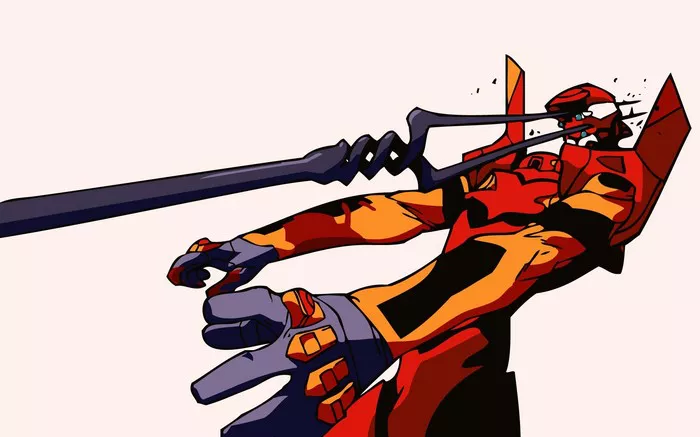Neon Genesis Evangelion, created by Hideaki Anno, is a seminal anime series renowned for its intricate plot, complex characters, and philosophical themes. Set in a post-apocalyptic world besieged by mysterious beings known as Angels, the series follows the exploits of a group of teenagers piloting giant bio-mechanical robots called Evangelions to defend humanity. Amidst the existential crises and psychological turmoil of its characters, the question of who truly embodies the role of the villain in Neon Genesis Evangelion remains a subject of intense debate and interpretation. In this article, we delve into the enigmatic world of Evangelion to uncover the identity and nature of its villainous forces.
Introduction to Neon Genesis Evangelion
Neon Genesis Evangelion is set in a futuristic Tokyo-3, a fortified city built to withstand the onslaught of the Angels, otherworldly entities bent on eradicating humanity. The series follows Shinji Ikari, a reluctant teenager thrust into the role of an Evangelion pilot, as he grapples with his own insecurities and the weight of his responsibilities. Alongside Shinji are fellow pilots Rei Ayanami and Asuka Langley Soryu, each struggling with their own traumas and inner demons.
As the series progresses, the true nature of the Angels, the origins of the Evangelions, and the machinations of the shadowy organization NERV are gradually revealed, leading to existential crises and moral dilemmas for the characters and viewers alike.
The Angels: External Threat or Harbingers of Change?
At first glance, the Angels appear to be the primary antagonists of Neon Genesis Evangelion, posing a constant threat to humanity and the fragile peace of Tokyo-3. Each Angel possesses unique abilities and characteristics, ranging from immense size and strength to reality-warping powers and advanced technology. Their appearances prompt frantic battles and desperate defenses as humanity struggles to fend off their relentless assaults.
However, as the series unfolds, it becomes increasingly apparent that the true nature of the Angels is more complex than initially assumed. While they may serve as catalysts for conflict and destruction, the Angels also harbor enigmatic qualities and motives that challenge conventional notions of good and evil. Some Angels display curiosity and intelligence, while others exhibit signs of empathy or longing for connection, blurring the lines between friend and foe.
NERV and the Human Instrumentality Project: Unraveling the Machinations of Man
Behind the scenes of the battle against the Angels lies the enigmatic organization NERV, tasked with defending humanity from the Angel threat using the powerful Evangelion units. Led by the enigmatic Gendo Ikari, NERV operates with a shroud of secrecy and intrigue, concealing its true intentions and objectives from both its enemies and its allies.
As the series progresses, it is revealed that NERV’s ultimate goal is the realization of the Human Instrumentality Project, a mysterious and controversial endeavor that promises to transcend the limitations of human existence and merge all individual consciousnesses into a singular, godlike entity. Gendo’s obsession with the project drives him to manipulate events and exploit the Evangelion pilots, including his own son Shinji, in pursuit of his ambitions.
The Nature of Evil: Exploring the Human Condition
One of the central themes of Neon Genesis Evangelion is the nature of evil and its manifestation in the human psyche. While the Angels may embody external threats to humanity, the true villains of the series are revealed to be the inner demons and traumas that haunt the characters’ minds and souls.
Each of the main characters in Evangelion grapples with their own struggles and insecurities, from Shinji’s crippling self-doubt to Rei’s existential crisis and Asuka’s deep-seated trauma. These internal conflicts manifest as psychological battles within the mindscape of the Evangelion units, where the characters confront their deepest fears and darkest desires.
In this sense, the true villain of Neon Genesis Evangelion is the human condition itself, with its capacity for cruelty, selfishness, and self-destruction. The series explores the complexities of the human psyche and the moral ambiguity of existence, challenging viewers to confront their own perceptions of good and evil.
Conclusion: The Enigmatic Villainy of Neon Genesis Evangelion
In conclusion, the question of who is the villain in Neon Genesis Evangelion defies easy categorization, as the series transcends traditional notions of heroism and villainy. While the Angels may serve as external threats to humanity, the true adversaries are the internal struggles and existential dilemmas faced by the characters themselves.
From the enigmatic Angels to the shadowy machinations of NERV and the complexities of the human psyche, Neon Genesis Evangelion presents a rich tapestry of moral ambiguity and philosophical inquiry. The series challenges viewers to question their assumptions and confront the darkness within themselves, offering no easy answers but inviting contemplation and introspection.
In the end, the true villain of Neon Genesis Evangelion may be found not in the battles against external foes, but in the relentless pursuit of understanding and acceptance in the face of uncertainty and despair.


